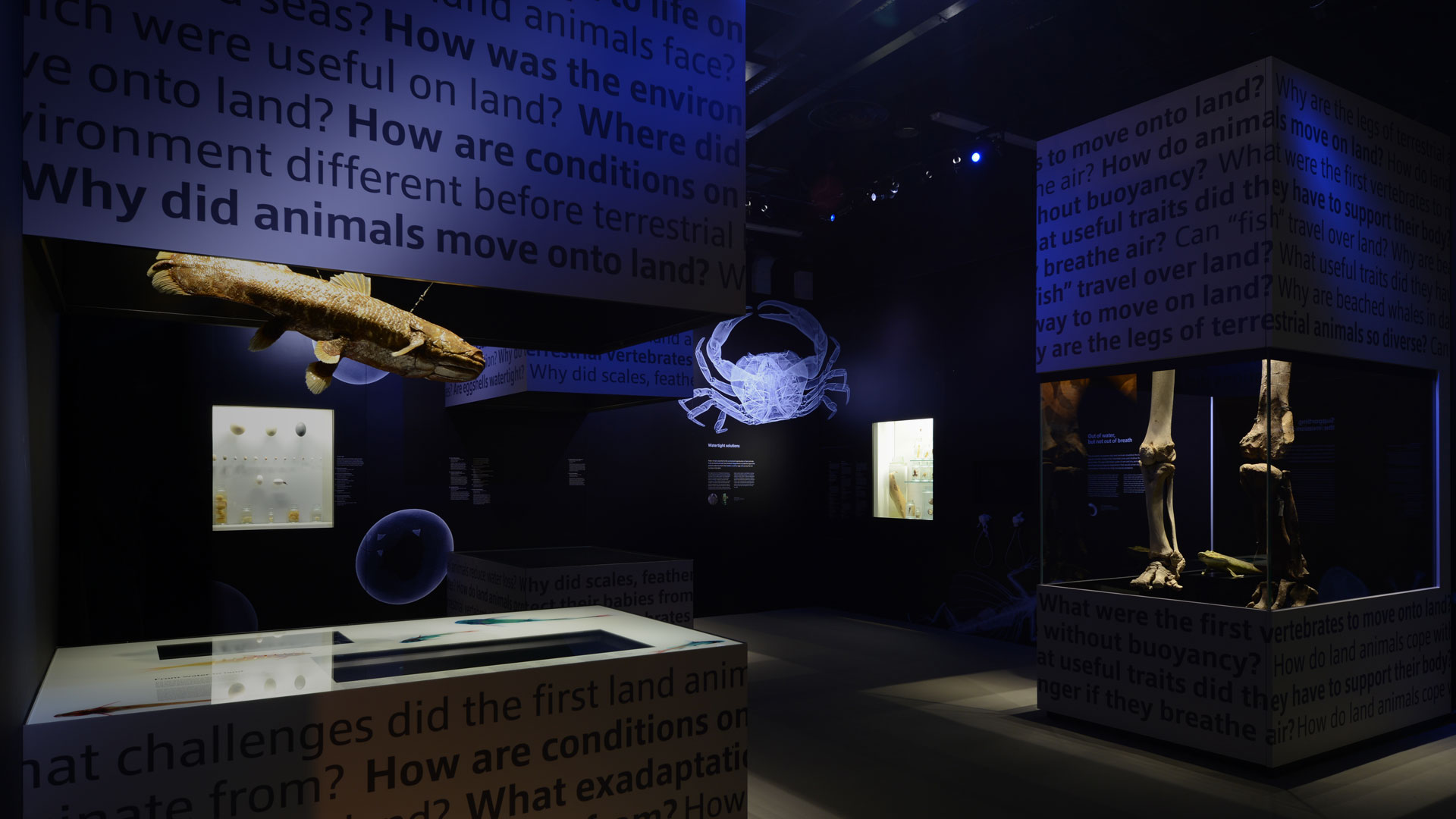Equipping Educators with Knowledge on Nature-based Climate Solutions
To solve the climate crisis, it is important that stakeholders come together to share and act on their collective knowledge. Our educators play a pivotal role in preparing our future generations to be ecological citizens, informed with knowledge of the global climate crisis and how we can solve it. Hence, this new programme aims to equip educators with the essential knowledge and tools on climate change, biodiversity, and nature-based solutions to incorporate into their teachings.
The Centre for Nature-based Climate Solutions (CNCS) and the Lee Kong Chian Natural History Museum (LKCNHM) from the National University of Singapore (NUS) organized a programme “Nature-based Climate Solutions for Geography Teachers” for 21 humanities educators and staff from the Ministry of Education (MOE). Headed by Fung Tze Kwan, PhD student from CNCS, and Jharyathri Thiagarajah, senior education officer of LKCNHM, with support from Prof Koh Lian Pin, Director of CNCS, this programme was held on three different sessions—17 February, 24 February and 3 March 2022.
Nature-based climate solutions are actions that protect, restore and sustainably manage natural ecosystems and agricultural lands to address climate change and biodiversity loss.
As climate change is featured in all levels of study in the Geography syllabus, the objective of the Continuing Education and Training programme by MOE is to provide educators with the opportunity to learn about the science of climate change and the different actions and solutions to address climate change, including nature-based climate solutions, and bring this back to the classroom to apply in their curriculum planning.
Geography is all around us—both indoors and outdoors!
During the three-day programme, the team from CNCS and LKCNHM prepared a slew of informative and interactive activities for the teachers—ranging from lectures, guided tours and brainstorming sessions.
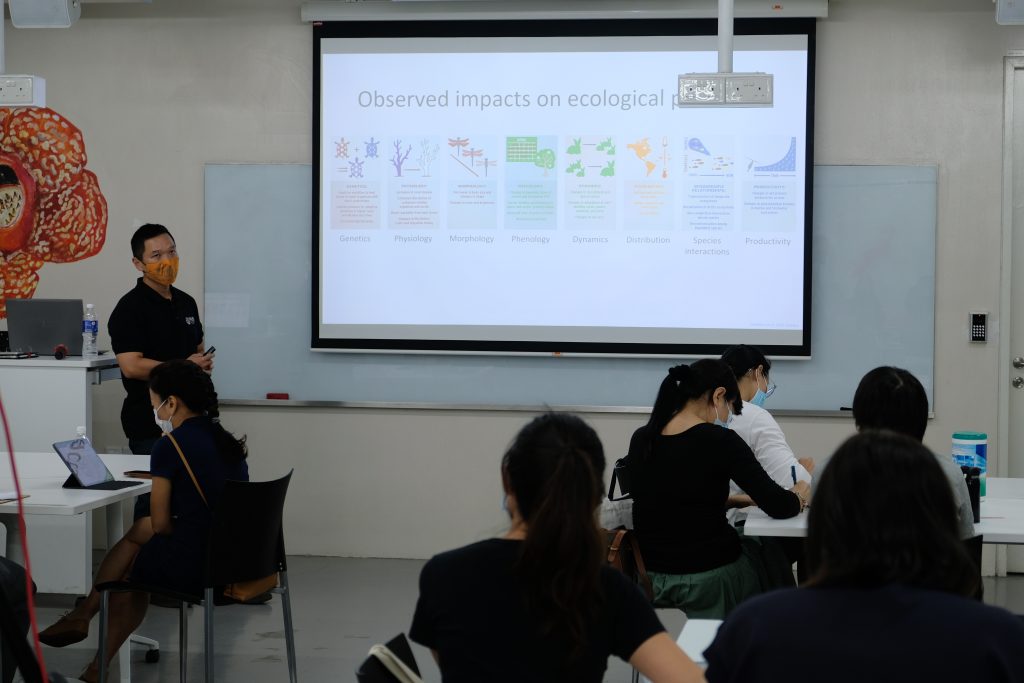
Professor Koh Lian Pin, Director of CNCS, giving a 1-hour lecture on climate change and an introduction to nature-based climate solutions. (Photo credit: Fung Tze Kwan)
What is a programme for geography teachers without fieldtrips? During the first session, the LKCNHM Outreach and Education Unit (OEU) brought the teachers on a guided tour around the museum’s gallery. The gallery tour focuses on the theme of climate change impacts on biodiversity, specifically within green and blue carbon ecosystems (land forests, and coastal and marine environments respectively which store carbon). The teachers were also brought on an exclusive behind-the-scenes tour of the museum’s collections featuring specific specimens.
The teachers also embarked on a field exploration to Sungei Buloh Wetland Reserve, which is a nature reserve familiar to most geography teachers. Through the guided field trip and activities, the teachers gained an immersive experience in understanding the importance of protecting carbon-rich mangrove forests as a nature-based climate solution.
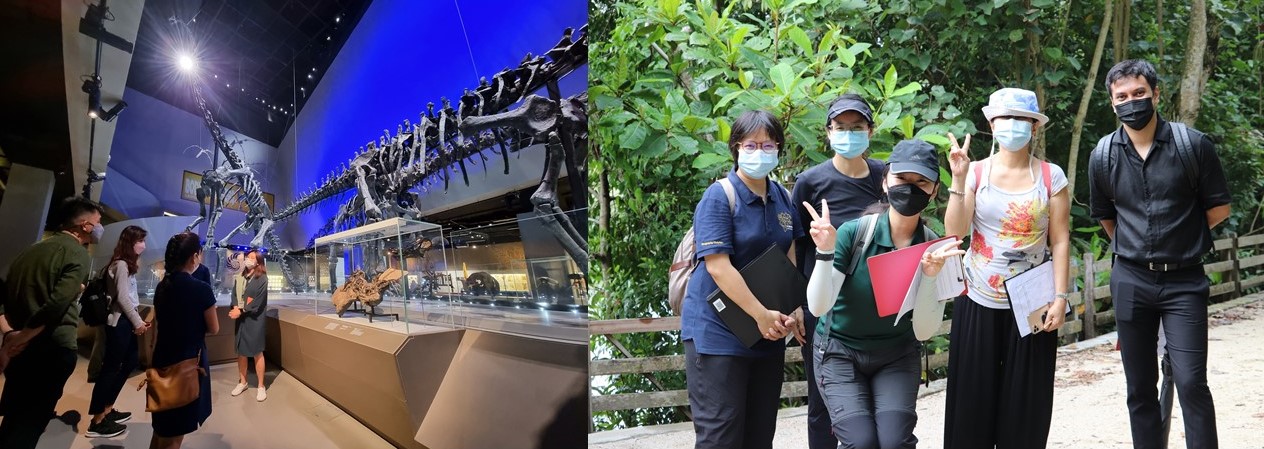
The LKCNHM OEU team bringing the participants for a guided tour at LKCNHM’s gallery and the Sungei Buloh Wetland Reserve on separate occasions. (Photo credits: Cherry Goh and Jharyathri Thiagarajah)
Learning about climate change with some fun
To spark creativity and amusement, the teachers also took part in the ‘LKCNHM Green Champion: Climate Change Card Game’. Designed by the LKCNHM OEU, the card game allows for contextual teaching and learning about climate change impacts and mitigation measures while injecting some adrenaline and fun.

A snapshot of some of the cards in the ‘LKCNHM Green Champion: Climate Change Card Game’ and a team of teachers playing the game. (Photo credits: Fung Tze Kwan)
Putting their knowledge to the test
On their last session, the teachers entered a ‘flipped classroom’, which is a teaching concept that invites teachers to work together and use their knowledge acquired over the past two sessions to brainstorm and create lesson ideas which could potentially be used in their own classrooms. Feedback on the teachers’ presentations was provided by a panel which included Prof Koh and research and education staff from CNCS and LKCNHM.
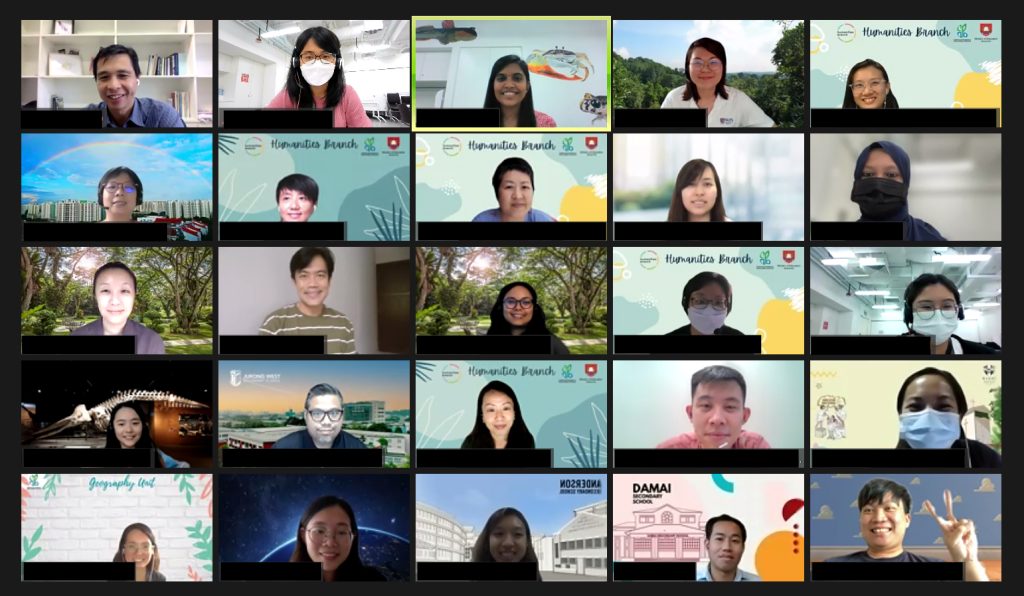
A screenshot of the teachers who participated in the programme. This last session was held online due to the surge in COVID-19 cases. (Photo credit: Jharyathri Thiagarajah)
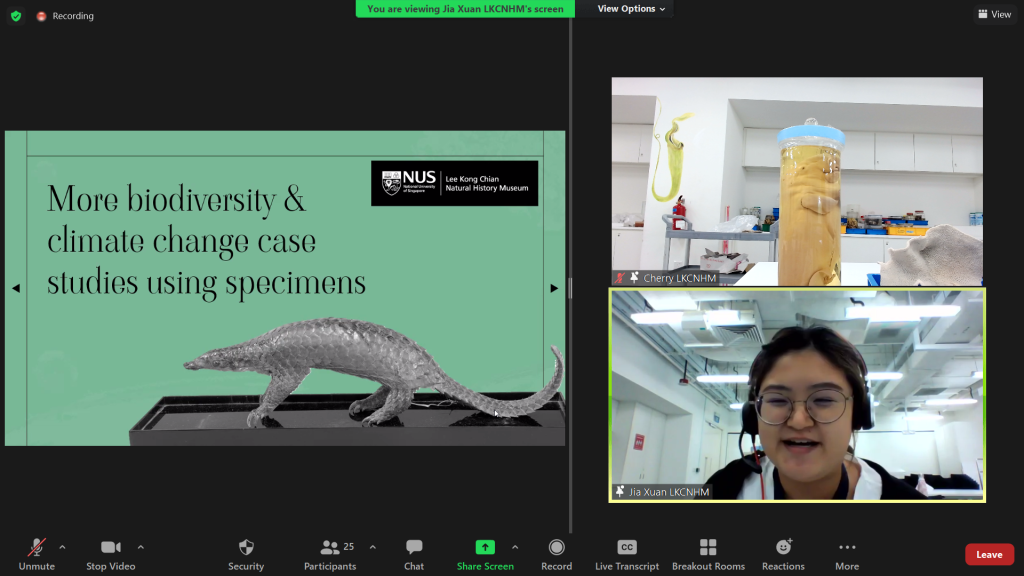
Our education staff, Jia Xuan, giving a presentation on biodiversity and climate change case studies using some of the museum’s specimens. (Photo credit: Cherry Goh)

